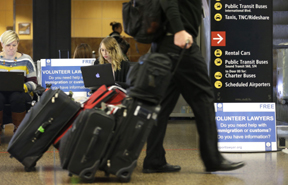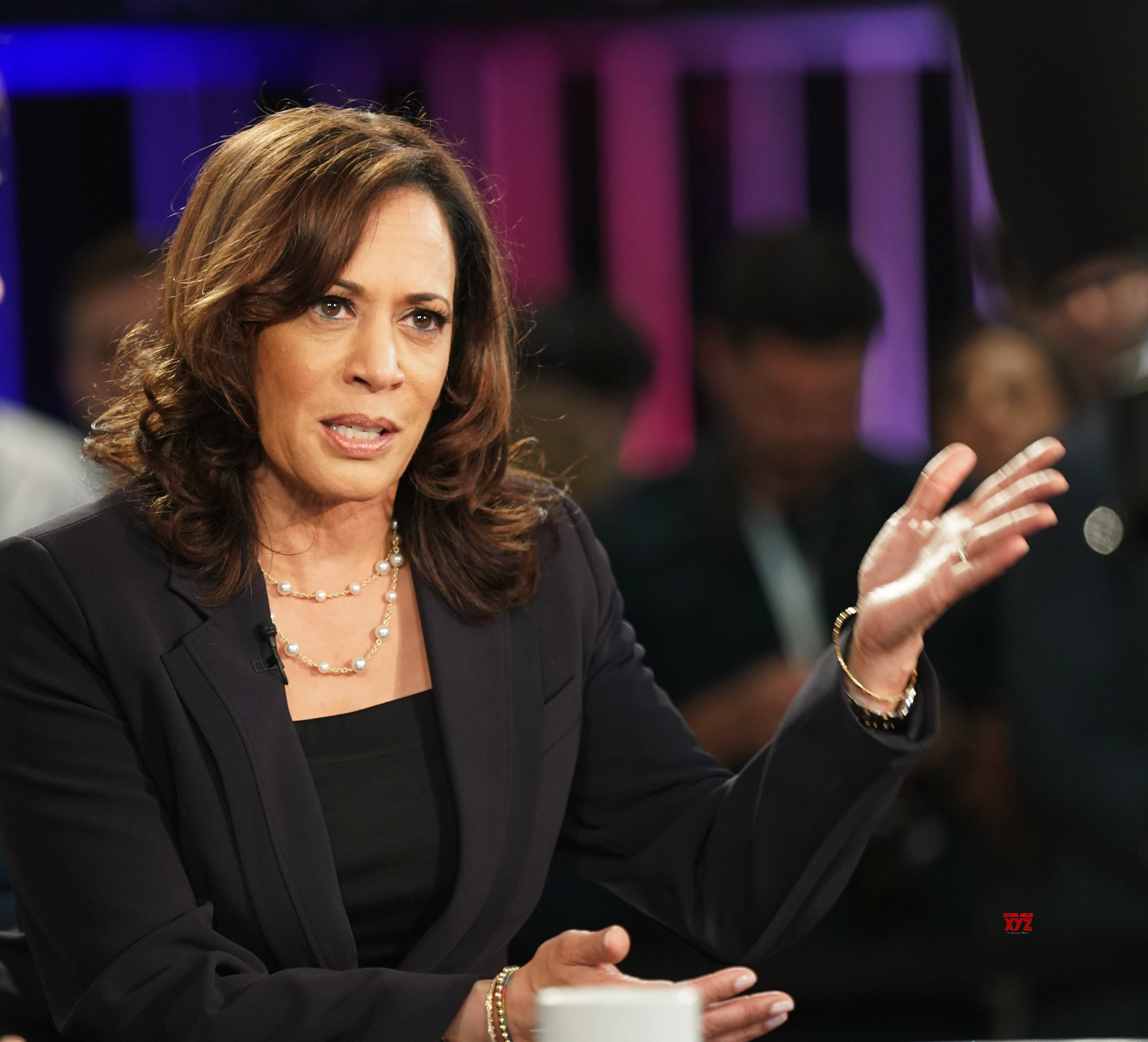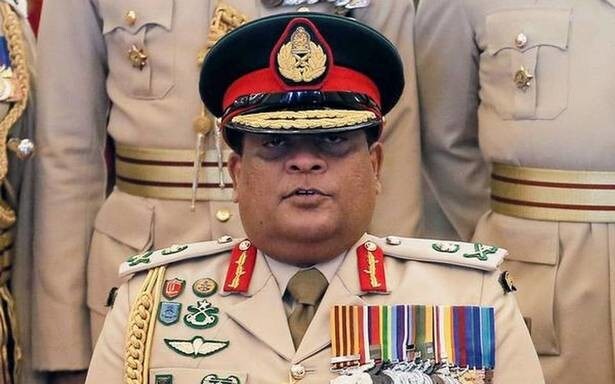 WASHINGTON: The US today defended its move to ban large electronic devices like laptops and cameras as cabin baggage on US-bound planes from 10 foreign destinations, mostly in Muslim-majority countries, citing concerns over terrorists’ interest in targeting commercial flights.
WASHINGTON: The US today defended its move to ban large electronic devices like laptops and cameras as cabin baggage on US-bound planes from 10 foreign destinations, mostly in Muslim-majority countries, citing concerns over terrorists’ interest in targeting commercial flights.
Passengers travelling to the US from these airports in eight countries cannot carry cameras and laptops as cabin baggage under a new Trump administration order.
Being implemented for an indefinite period of time, the new security measures apply to 10 specific airports — Queen Alia International Airport (AMM), Cairo International Airport (CAI), Ataturk International Airport (IST), King Abdul-Aziz International Airport (JED), King Khalid International Airport (RUH), Kuwait International Airport (KWI), Mohammed V Airport (CMN), Hamad International Airport (DOH), Dubai International Airport (DXB) and Abu Dhabi International Airport (AUH).
“Remember that these are 10 airports of last point of departure to the US out of 250 that come here. Part of it is to provide appropriate notification to the host country, to the host airlines, and give them opportunity to get those procedures in place,” White House Press Secretary Sean Spicer told reporters at his daily news conference.
“I’m not going to comment any further about the security measures that have been taking place or are taking place.
Implementing something of this nature in that timeframe is pretty darn quick,” Spicer said in response to a question.
The Department of Homeland Security (DHS) said the aviation security enhancements will include requiring that all personal electronic devices larger than a cell phone or smart phone be placed in checked baggage at 10 airports where flights are departing for the United States.
However, there’re no such restrictions on domestic flights or flights departing the United States.
“Evaluated intelligence indicates that terrorist groups continue to target commercial aviation, to include smuggling explosive devices in various consumer items,” the DHS said but quickly noted that they have reason to be concerned about attempts by terrorist groups to circumvent aviation security and terrorist groups continue to target aviation interests.
“Implementing additional security measures enhances our ability to mitigate further attempts against the overseas aviation industry,” it said. The department did not rule out the possibilities of adding more airports to its list.
It said although the US has instituted robust aviation security measures since 9/11, information indicates that terrorist groups’ efforts to execute an attack against the aviation sector are intensifying given that such attacks provide an opportunity to cause mass casualties and inflict significant economic damage, as well as generate overwhelming media coverage. .
“We note that disseminated propaganda from various terror groups is encouraging attacks on aviation, to include tactics to circumvent aviation security,” the DHS said.
It said the terrorist propaganda has highlighted the attacks against aircraft in Egypt with a soda can packed with explosives in October 2015, and in Somalia using an explosives-laden laptop in February 2016.
Noting that terrorists have historically tried to hide explosives in shoes in 2001, used liquid explosives in 2006, and concealed explosives in printers in 2010 and suicide devices in underwear in 2009 and 2012, it said within the last year, there were attacks at airports in Brussels and Istanbul.
“The new security measures put in place by the TSA at high risk Last Point of Departure airports are a clear response to the ever-changing threats that we face,” said Congressman John Katko, chairman of the Homeland Security subcommittee in charge of the TSA.
“In the current heightened threat environment, aviation remains a top target for terrorist organizations,” he added.
According to Senator Bill Nelson, there is a real threat from terrorists.
The US Travel Association supported the latest security measures.
“The American travel community supports efforts to make flying more secure. We urge the federal government to make every effort to minimize disruption to legitimate travelers by clearly and quickly articulating the details of the new policy to enforcement personnel and the flying public. Even with security as a justification, it does not absolve authorities of the responsibility to communicate,” said its executive vice president Jonathan Grella.
The Global Business Travel Association executive director and COO Michael W McCormick also supported the move.
At the same time he said they are awaiting more information as to whether this addresses a specific security threat and also reaching out to its members to assess the impact on business travel.
Global business travel spend topped USD 1.3 trillion in 2016 and is projected to reach USD 1.6 trillion by 2020. –PTI






